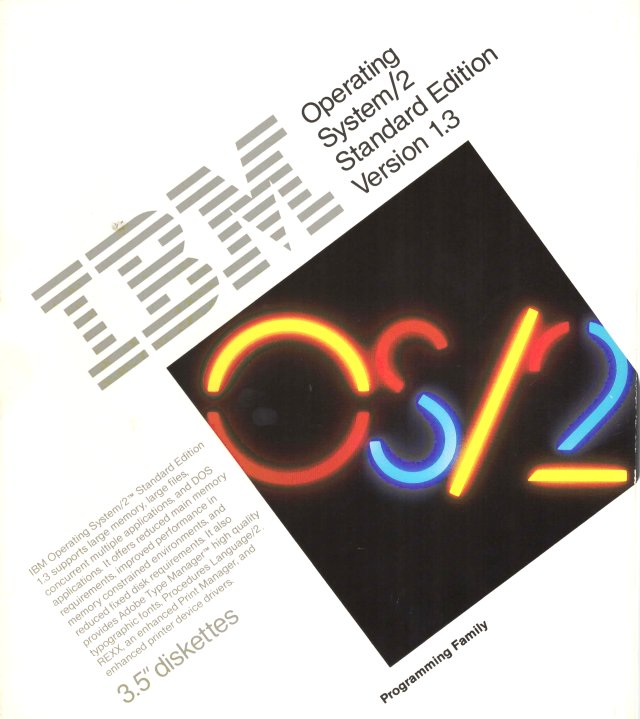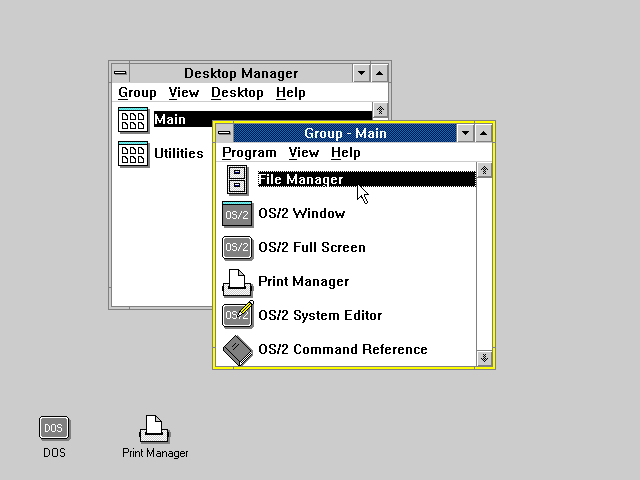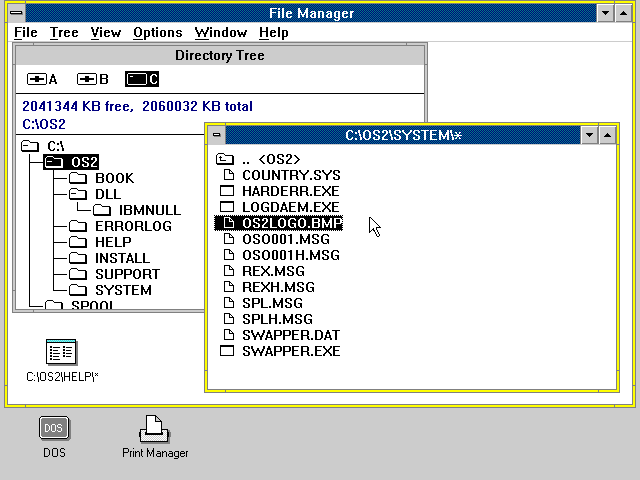OS/2 1.x 1.3
OS/2 was originally a joint effort between IBM and Microsoft. It grew out of efforts to create a Multitasking MS-DOS. It was intended to be the future OS for IBM's new PS/2 series. At release it competed against Microsoft's Windows GUI shell, but most users continued to use DOS. OS/2 1.x was used as the basis for Citrix Multiuser
1.x was heavily criticized for its poor backwards compatibility, heavier system requirements, design decisions made in order to support 286s instead of just 386s, poor hardware compatibility, and lack of third party driver support. There was an inaccurate, but justifiable, common belief that OS/2 could only run on genuine IBM hardware.
Still, it was believed that all future software development would be for OS/2, until an almost overnight fallout between IBM and Microsoft shifted the spotlight to the yet to be developed Windows NT.
Without Microsoft's help, IBM massively re-wrote OS/2 to produce OS/2 2.x
Other OS/2 Versions:
| 1.x | 2.x | 3.x | 4.x | All |
Screenshots
Release notes
Mostly developed by IBM, and the last sold through Microsoft.
Installation instructions
To install 1.3.0 on a faster computer or VirtualBox, you must first apply the OS/2 speed patches described here to the boot disk: http://www.os2museum.com/wp/installing-os2-1-x-in-a-virtualbox-vm/ Later versions correct the issue.
To summarize, replace all occurrences of: B8 F4 01 BB C8 00 F7 E3 F7 F1 with B8 F4 01 BB C8 00 F7 E3 90 90
You may also need to partition the disk in advance.
Information
- Product type
- OS
- Vendor
- IBM / Microsoft
- Release date
- 1990
- Minimum CPU
- 286
- Minimum RAM
- 2MB
- User interface
- GUI
- Platform
- OS2
- Download count
- 33 (14 for release)


